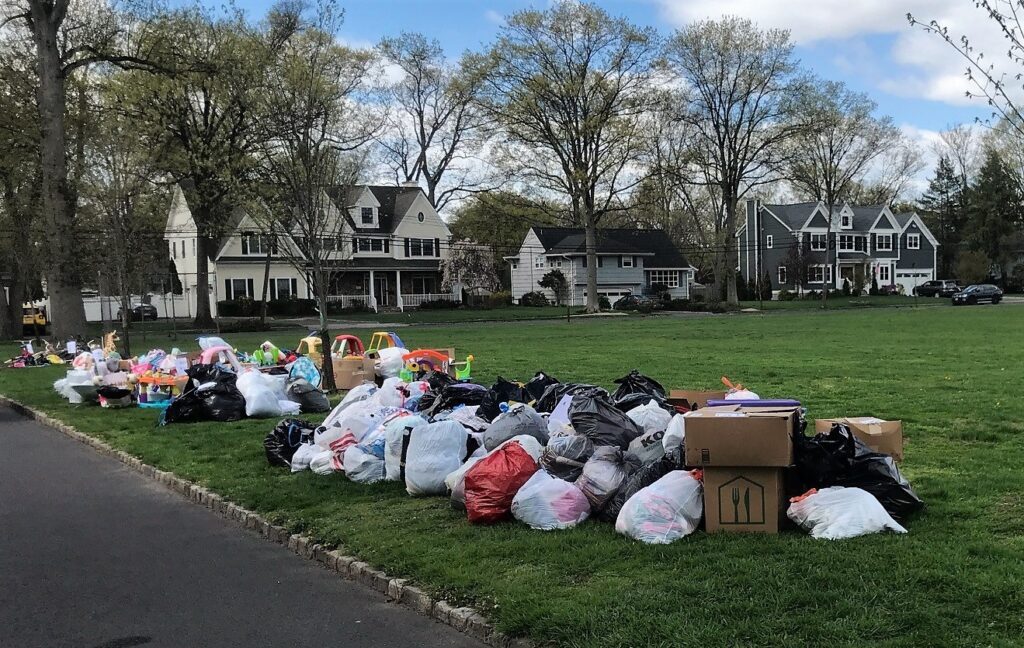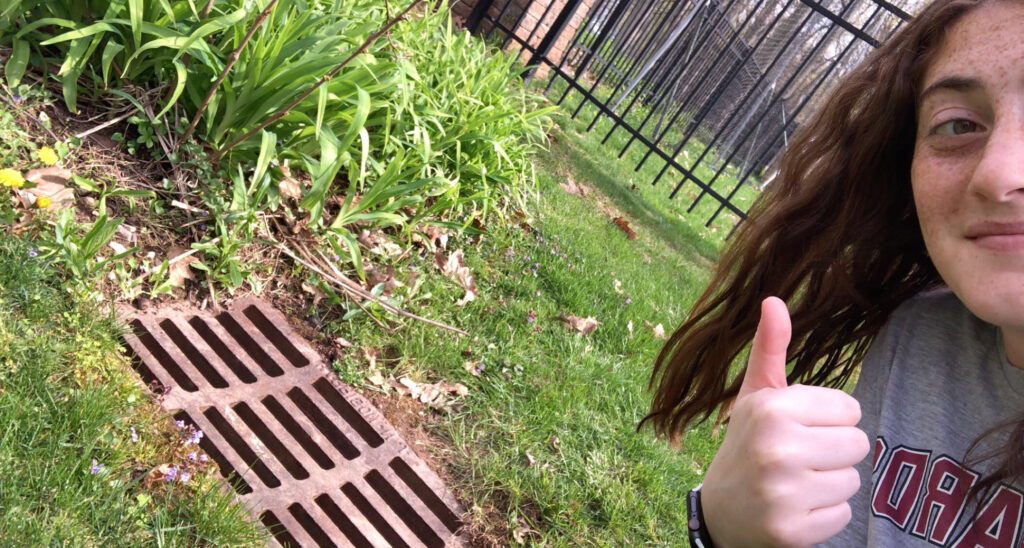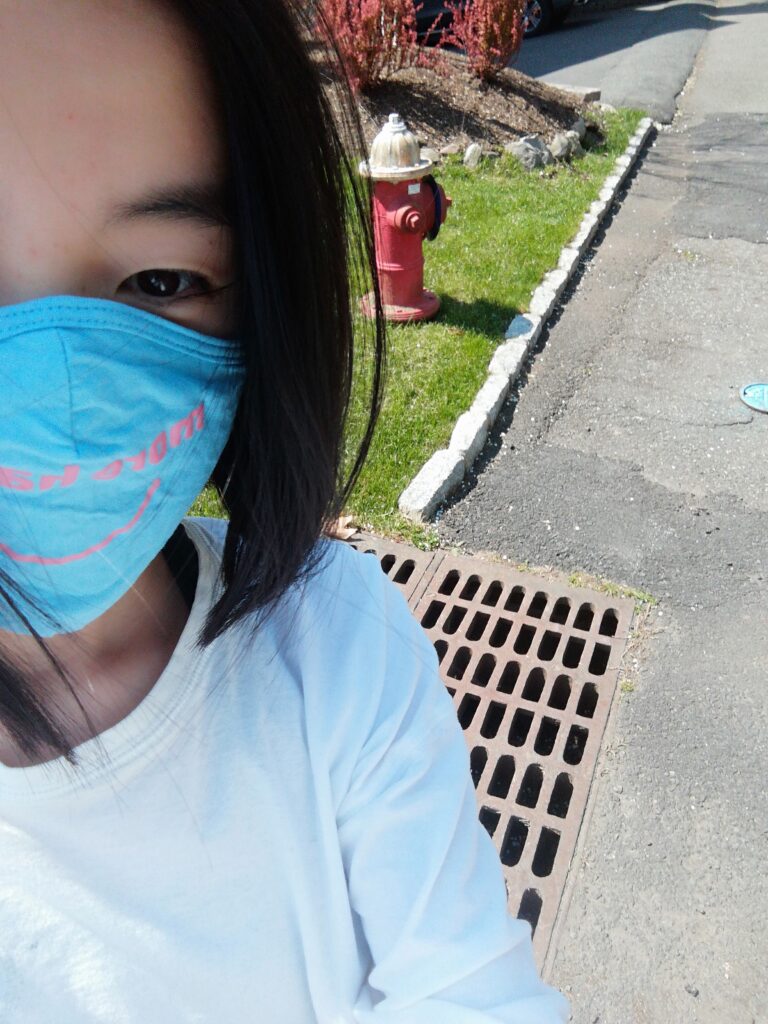
Earth Day at Westfield Public Schools
Submitted by Mary Ann McGann
Whether cleaning neighborhood storm drains, tending to school gardens, or collecting gently used toys and clothing to both aid those in need and reduce landfill loads, a tradition of environmental stewardship remains constant in the Westfield Public Schools community on Earth Day and year-round.
Environmental Science students at Westfield High School (WHS) are participating in several projects, including teaming up with the Westfield Department of Public Works and the Westfield Green Team on the New Jersey “Adopt a Storm Drain” program (nj.adopt-a-drain.org). Westfield “adopt-a-drain” organizers point out that “when it rains, stormwater carries grass clippings, leaves, garbage, pesticides, fertilizers, antifreeze, paint, gasoline, motor oil, and animal waste directly into our local watersheds.”
“There are 2,400 storm drains in Westfield,” adds WHS environmental science teacher Judith McLoughlin, who asked student volunteers to familiarize themselves with the “adopt a drain” program and to follow the tips to safely clean 3 drains near their home using a broom/rake, gloves, a waste bag and other tools. “While most of the students are seniors who will be heading off to college, we hope that raising awareness of this issue may help garner support for this endeavor among other students and residents.”
McLoughlin also assigned her students to interview a person in their 60s or 70s to gain a historical perspective of environmental issues dating back to when Earth Day was first created in April, 1970. The students will ask the same questions of people in the 16-26 age range as part of the project.
The K-12 curriculum includes units on earth systems, animal habitats, weather, pollution control, and other aspects of earth and environmental sciences. Dedicated Green Team and other student clubs raise awareness about the environment, while students and staff participate in recycling initiatives. There are water bottle refilling stations at each of the district’s ten schools with electronic counters that advise how many disposable plastic bottles will not wind up in landfills through use of the re-filling station. And, across the district, students and parent volunteers have begun springtime efforts in school gardens that provide important learning opportunities.
“It is the small actions that can really make a difference,” says McLoughlin.



